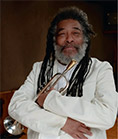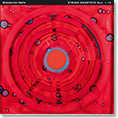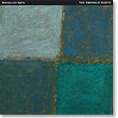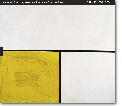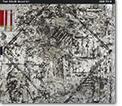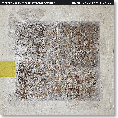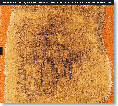AHMED ABDULLAH´S EBONIC TONES
Improvised music entered a difficult period in the late 1960s as a result of a number of factors. During the early and mid-1960s, the music had reached new heights of creativeness through the efforts of the so-called new jazz or avant garde but, with considerable help from the media (including the jazz media), a notion was created that the music had become too difficult, it had reached a dead end. This notion, coupled with the advent of rock music and the splintering of jazz into various different musical styles, meant considerable hardship for many of its practitioners. Performance opportunities became fewer and fewer and record labels showed little interest towards improvised music. As a result, many creative musicians chose to leave the United States and move to Europe whereas many others took up teaching or other vocations outside of music.
Still, the music managed to continue to grow. In the early to mid-1970s, one expression of that fact was the so-called Loft Jazz movement in New York City. Rather than staying passive, creative musicians seized the initiative, like they had in the early 1960s, and founded their own performance spaces particularly in the Lower Manhattan area, including such legendary spots as Sam Rivers´ Studio Rivbea, Rashied Ali´s Ali´s Alley, Joe Lee Wilson´s Ladies´ Fort and many others. At these performance spaces, more experienced musicians, such as Rivers and Ali, came together with younger ones to create music of their own choice while paying little attention to whether the media thought that jazz was dead or not.
Many of the key participants in the Loft Jazz movement were included in a five-album collection Wildflowers: The New York Loft Jazz Sessions (Douglas) that featured a total of more than 20 groups, including a band called Abdullah led by a young trumpeter Ahmed Abdullah and featuring the combination of trumpet with saxophone, guitar, two basses and drums. This collection represented the recording debut of Ahmed Abdullah. Coincidentally, included on the recording was also Alex Blake playing bass for Randy Weston´s group. A third musician featured with Ebonic Tones, violinist Billy Bang, was also very much a part of the Loft Jazz movement although not playing with any of the groups in the Wildflowers collection. Beginning in the early 1970s, Abdullah and Bang have played together in various groups and also collaborated with some of the same people, including the late saxophonist Frank Lowe.
Ahmed Abdullah, Alex Blake, Billy Bang and Andrei Strobert also share another important piece of common history. They were all, at various times, members of the Sun Ra Arkestra, with Abdullah having spent the most time playing with the intergalactic master. Even Alex Harding, the youngest member of Ebonic Tones, comes close to having shared some common history with the Sun Ra Arkestra in that he played with the Arkestra under the leadership of Marshall Allen after Sun Ra had passed on.
Ahmed Abdullah himself says the following of Ebonic Tones and their current
album:
"Ebonic Tones (aka "colored sounds") is in a sense a reincarnation of a band that I put together in 1986 known as The Group (with Marion Brown, Billy Bang, Sirone, Fred Hopkins and Andrew Cyrille). Significantly, The Group was together for two and a half years and made no commercial recordings whereas Ebonic Tones was able to record only a year and a half after coming together. The difference has everything to do with our mindset. In the 1980s, as conservatism replaced wisdom in America, we reacted to Reagan´s ascendancy to power and the resultant lack of support for the arts by banding together in cooperative music groups. In the 1990s, we saw that conservative politics were going to be a way of life and we, therefore, initiated organizations and institutions as a support base for cooperative music groups and for the survival of the music and the well-being of our people.
This initial recording of Ebonic Tones is presented as a musical journey by taking you through a wide array of styles in order to help you understand what we call "Jazz: The Music of the Spirit". This music comes from a vast history of people whom I have appreciated, respected and celebrated."
Following his activities as part of the Loft Jazz movement, Ahmed Abdullah has continued to pursue his own artistic vision. He has led or co-led a number of his own groups starting with Abdullah and The Solomonic Unit and, currently, continuing with Ebonic Tones, NAM and Diaspora. Many of these groups have been characterized by an instrumentation that has differed from the standard jazz groups (combining, for example, Abdullah´s trumpet with French horn, cello, bass, vibraphone and drums in a later version of Abdullah) and have featured some of the most creative musicians of the period. In addition, even after the passing of Sun Ra, Abdullah has continued to demonstrate his devotion to Sun Ra´s music both as a teacher and, most recently, as the leader of his Diaspora (Dispersions of the Spirit of Ra) ensemble. In a way, this recording combines both of these sides of Abdullah´s career. Once again, Ebonic Tones features the somewhat unusual and highly effective frontline of trumpet with violin and baritone saxophone and, in addition, the selection of music includes two of Sun Ra´s compositions that were of particular significance to Abdullah during his time with the Arkestra.
Given Ahmed Abdullah´s background in the Loft Jazz movement of the 1970s and some of his affiliations over the years, one could perhaps expect the music of Ebonic Tones to be quite demanding to approach and understand. However, nothing could be further from the truth. Even though the music of Ebonic Tones has clearly been influenced by the more advanced creative music of the last few decades and has many layers that will continue to reward the listener, it is certainly not self-indulgent or difficult to appreciate. Rather, it is a celebration of the long history behind the music that Abdullah and his colleagues based in Brooklyn have chosen to refer to as "Jazz: The Music of the Spirit" and we are all invited to join in for that celebration.
When I first saw Ebonic Tones perform at Up Over Jazz Café in Brooklyn, I was struck by the atmosphere at the club. It was as if friends and neighbors had come to have a party together with the group and, truly, a good time was had by all. A bit like how I had imagined the Loft Jazz sessions of the 1970s (remember the happy background noise and sing-along atmosphere of Ornette Coleman´s Friends and Neighbors) although I, unfortunately, never personally witnessed those sessions. This was in considerable contrast to the atmosphere at a major jazz conference that I had just attended during the preceding two days, which was a mass event organized not so much to celebrate jazz as the music of the people but rather jazz as a means for commerce. Luckily, much of the atmosphere at Up Over Jazz Café comes through on this recording although nothing can quite compare to hearing this band live. If you have an opportunity to do so, please do not hesitate.

